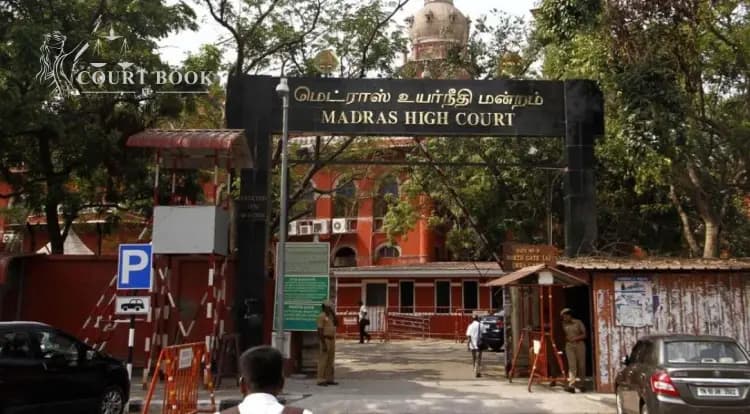The Madras High Court has emphasized that trial courts and special courts cannot deny video conferencing (VC) facilities to lawyers and litigants. The directive came while addressing the concerns of a prisoner who alleged mistreatment in Puzhal prison. The court further reiterated that undertrial prisoners have the right to basic facilities, including access to education.
A division bench comprising Justice S.M. Subramaniam and Justice M. Jothiraman was hearing the case of undertrial prisoner Fakrudeen, who was accused in multiple bomb blast cases. During the proceedings, advocates practicing in the Special Court for Bomb Blast Cases at Poonamallee raised serious concerns regarding the lack of basic facilities in the court, specifically highlighting the denial of VC facilities.
Read Also:- Delhi High Court Advocates Online Classes for Law Students: DU and Bar Council Directed to Frame Guidelines
The High Court took a firm stance, directing the Special Court to allow lawyers and litigants to conduct their cases via video conferencing. The judges noted that VC facilities had already been established in the court and should be accessible as per the rules set by the High Court.
“Video conferencing is presently made as a Rule by the High Court, and such a facility cannot be denied by any Court. We have verified the facility available to the Special Court at Poonamallee with the Registrar (IT cum Statistics). The Registrar, on verification, informed this Court that full video conferencing is intact, and therefore, the lawyers are at liberty to conduct cases through video conferencing.”
The Special Court was thus instructed to permit VC hearings, ensuring that lawyers and litigants could participate remotely as per the Video Conference Rules.
Ensuring Prisoners’ Fundamental Rights
In addition to addressing the VC facility, the court also took cognizance of the allegations made by the petitioner regarding inhumane treatment in prison. The prisoner claimed that he was being held in solitary confinement and was denied access to education and basic facilities.
Read Also:- 1984 Anti-Sikh Riots: Supreme Court Directs Delhi Police to File Petitions Against Acquittals Within 6 Weeks
The court reaffirmed that prisoners are entitled to fundamental human rights, stating:
“A prisoner is entitled to basic human rights and has the right to live with dignity in jail. The prisoners' right to education is a human right grounded in the right to dignity. The aims of imprisonment include reformation and rehabilitation, apart from deterrence.”
The bench referred to the Basic Principles for Treatment of Prisoners, 1990, adopted by the United Nations General Assembly, which explicitly states that all prisoners have the right to participate in cultural activities and education for the full development of their personality.
The court noted that the petitioner was pursuing a Bachelor's degree in Political Science but was denied access to books and study materials. The judges observed that education plays a crucial role in rehabilitation and directed the prison authorities to ensure that necessary educational resources are provided to undertrial prisoners.
“Education provides hope and aspiration while making purposeful use of time in detention. It also helps prisoners lead better lives once they are free.”
The court also highlighted the excessive delay in trials, noting that the petitioner had been in judicial custody for over 11 years. The bench underscored the significance of Section 436(A) of the Code of Criminal Procedure (CrPC), which mandates the release of undertrial prisoners if they have served half the maximum sentence for their alleged offense.
Furthermore, concerns were raised by advocates regarding the working conditions of the Special Court for Bomb Blast Cases. Complaints included the lack of drinking water, toilet facilities, and overall poor conditions for lawyers appearing in the court. The court directed the Registrar of the City Civil Court, Chennai, to ensure that these basic facilities are provided.
Appointment of Defense Counsel for the Petitioner
Another major issue raised during the proceedings was the unavailability of experienced lawyers to represent the petitioner. Many leading advocates were unwilling to travel to Poonamallee for trial proceedings. Addressing this, the court requested Mr. B. Mohan, an experienced defense counsel, to represent the petitioner.
“Mr. B. Mohan, learned defense counsel, has agreed to conduct the trial before the Special Court on behalf of the petitioner. He is permitted to engage other lawyers to assist him.”
Additionally, the District Legal Services Authority (DLSA) was directed to settle legal fees for Mr. Mohan and his assisting lawyers as per the provisions of the law, ensuring that the petitioner has adequate legal representation.
Case Title: Fakrudeen v. The Deputy Inspector General of Prisons












